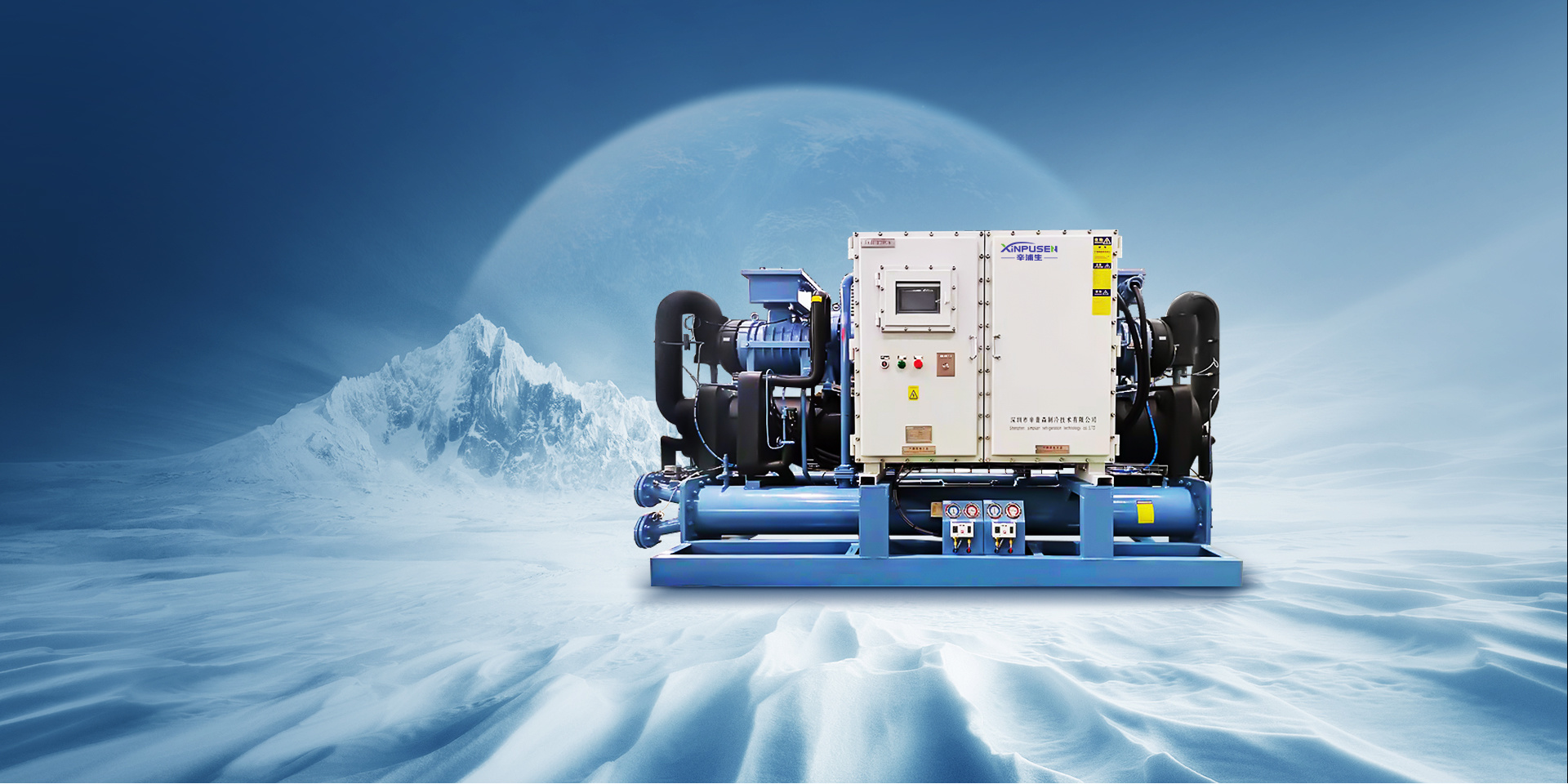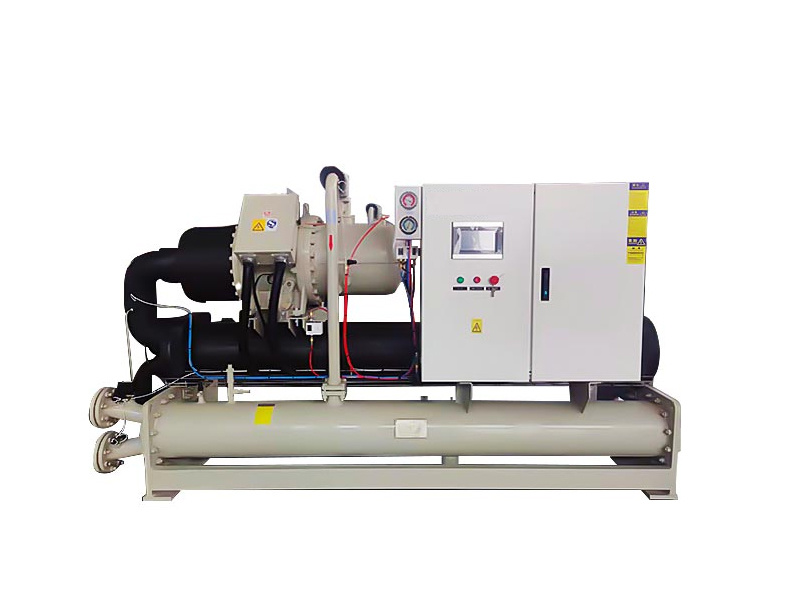Why Your Industry Needs a Natural Cooling Air-Cooled Chiller: The Key to Efficient and Sustainable Cooling Solutions
2025-08-12 22:00
Why Your Industry Needs a Natural Cooling Air-Cooled Chiller
Introduction to Natural Cooling Air-Cooled Chillers
In today's rapidly evolving industrial landscape, the demand for efficient and sustainable cooling solutions is paramount. **Natural cooling air-cooled chillers** represent a groundbreaking advancement in cooling technology, combining efficiency with environmental consciousness. These systems utilize ambient air for cooling, significantly reducing energy consumption and operational costs.
The Fundamentals of Air-Cooled Chillers
Air-cooled chillers are essential components in various industrial applications, from manufacturing to food processing. They function by removing heat from a liquid via a vapor-compression or absorption refrigeration cycle. The chilled liquid is then circulated through the system to absorb heat from the environment, ensuring optimal operational conditions.
How Natural Cooling Works
Natural cooling utilizes the ambient air's temperature to cool the refrigerant without relying heavily on traditional energy sources. This method capitalizes on the cooler air temperature in the environment, particularly during nighttime or cooler seasons, to enhance efficiency. By leveraging natural cooling techniques, industries can achieve significant cost savings and reduce their carbon footprint.
Benefits of Natural Cooling Air-Cooled Chillers
1. Enhanced Energy Efficiency
One of the most compelling reasons to invest in natural cooling air-cooled chillers is their **enhanced energy efficiency**. These systems can operate effectively at lower energy consumption levels, leading to reduced electricity bills. According to industry studies, companies can achieve up to a **30% reduction in energy costs** compared to conventional cooling systems.
2. Environmental Sustainability
As businesses strive to adopt **sustainable practices**, integrating natural cooling air-cooled chillers is a step in the right direction. Utilizing ambient air reduces greenhouse gas emissions associated with electricity generation, promoting a cleaner environment. Companies can showcase their commitment to sustainability, enhancing their brand image and meeting regulatory requirements.
3. Reduced Operational Costs
Natural cooling systems not only lower energy bills but also reduce maintenance costs. These chillers typically have fewer moving parts, leading to less wear and tear. This reliability translates to **lower repair and replacement expenses** over time, allowing businesses to allocate resources more effectively.
4. Improved Performance and Reliability
Natural cooling air-cooled chillers are designed to operate efficiently under varying environmental conditions. They provide consistent cooling performance, maintaining optimal temperatures even during peak demand. This reliability is crucial for industries that cannot afford downtime, ensuring smooth operations and enhanced productivity.
5. Space-Saving Design
Many natural cooling air-cooled chillers feature a compact design, making them suitable for facilities with limited space. Their smaller footprint allows for easier installation and integration into existing systems, minimizing disruption to operations.
Applications of Natural Cooling Air-Cooled Chillers
1. Manufacturing Facilities
In manufacturing, maintaining consistent temperatures is vital for product quality. Natural cooling chillers ensure that machinery operates within optimal temperature ranges, preventing overheating and extending equipment lifespan.
2. Food and Beverage Industry
The food and beverage industry requires precise temperature control to preserve product integrity. Natural cooling air-cooled chillers effectively manage refrigeration needs while minimizing energy usage, making them perfect for food processing plants.
3. Data Centers
Data centers generate significant heat and require efficient cooling solutions to maintain optimal server performance. Natural cooling air-cooled chillers can help manage heat loads effectively, ensuring reliable IT operations without excessive energy consumption.
4. Pharmaceutical Manufacturing
In pharmaceutical production, strict temperature control is necessary for compliance and product efficacy. Natural cooling systems provide the reliability required to meet these standards while reducing operational costs.
Choosing the Right Natural Cooling Air-Cooled Chiller
1. Assessing Your Cooling Needs
Before selecting a natural cooling air-cooled chiller, it is essential to assess your facility’s specific cooling requirements. Consider factors such as the size of the space, the type of equipment being cooled, and peak cooling demands.
2. Evaluating Energy Efficiency Ratings
When comparing different models, pay attention to energy efficiency ratings. **Look for chillers with high EER (Energy Efficiency Ratio)** or SEER (Seasonal Energy Efficiency Ratio) ratings, which indicate better performance and lower energy consumption.
3. Understanding Installation Requirements
Installation can vary significantly between models. Ensure that the chosen chiller fits your facility's layout and can be integrated without significant modifications to existing systems.
4. Considering Maintenance and Support Services
Choose a reputable manufacturer that offers robust support services and maintenance plans. A well-maintained chiller will serve you better in the long run, ensuring continued efficiency and reliability.
FAQs about Natural Cooling Air-Cooled Chillers
1. What is the primary advantage of natural cooling air-cooled chillers over traditional chillers?
Natural cooling air-cooled chillers are more energy-efficient and environmentally friendly, utilizing ambient air to lower energy consumption and operational costs.
2. Can natural cooling air-cooled chillers operate in all climates?
Yes, while they perform best in temperate climates, advancements in technology enable them to function effectively in various conditions.
3. How do I determine the right chiller size for my facility?
Conduct a thorough assessment of your cooling needs, taking into account the size of the space, equipment requirements, and peak cooling loads.
4. Are there financial incentives for switching to natural cooling systems?
Many governments and organizations provide incentives for businesses that adopt energy-efficient technologies, which can help offset initial investments.
5. What maintenance is required for natural cooling air-cooled chillers?
Regular maintenance includes cleaning filters, inspecting components, and ensuring refrigerant levels are adequate to maintain efficiency and reliability.
Conclusion
In conclusion, natural cooling air-cooled chillers present a valuable opportunity for industries seeking to enhance energy efficiency, reduce operational costs, and promote environmental sustainability. By leveraging the benefits of these innovative cooling solutions, businesses can stay competitive in an increasingly eco-conscious market. Investing in a natural cooling air-cooled chiller is not just a smart decision for your bottom line; it’s a commitment to a more sustainable and efficient future. Embrace the change and reap the rewards of modern cooling technology today.
Previous: china natural cooling air-cooled chiller
More Information
2026-03-02
Understanding the Advantages of Water-Cooled Screw Chillers for Industrial Applications
2026-02-24
quality air cooled industrial chiller
2026-02-23
Essential Insights into Air Cooled Industrial Chillers: Efficiency, Selection, and Maintenance
2026-02-16
What to Expect During the Installation of Air Cooled Industrial Chillers: A Comprehensive Guide
2026-03-02
Understanding the Advantages of Water-Cooled Screw Chillers for Industrial Applications









 CN
CN EN
EN


